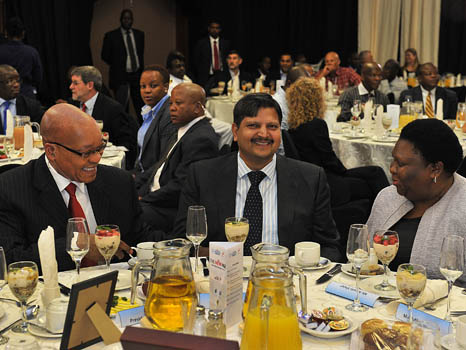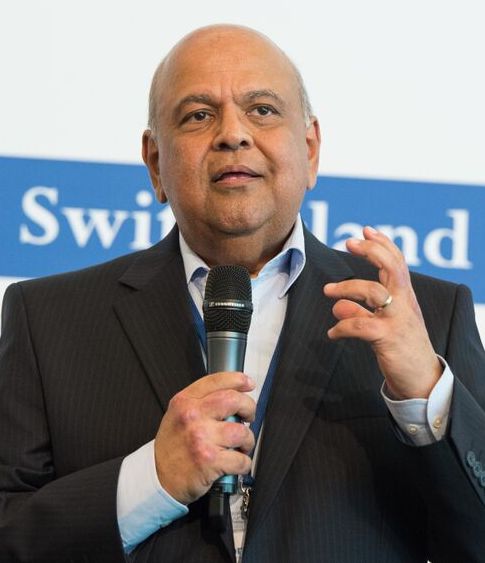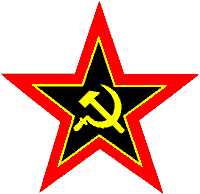African National Congress in crisis
By Alex Davidson
Despite considerable pressure the African National Congress (ANC) National Executive Committee (NEC) has rejected calls for President Jacob Zuma to stand down amidst allegations of corruption. At a tense meeting of the NEC at the end of November some members – including Government Ministers – called for the President to stand down. At the conclusion of the meeting Gwede Mantashe, ANC Secretary General issued a statement, “Following robust, honest, candid and at times difficult discussions, the NEC did not support the call for the President to step down. The NEC resolved that it was more urgent to direct the energies of the ANC in its entirety to working towards the unity of the movement.”
The ANC is due to hold its elective conference in December 2017 at which a new leadership will be elected. Jacob Zuma is expected to stand down as ANC President at that conference but could remain as State President until the 2019 national elections.
The decision of the ANC’s NEC comes after weeks of crisis involving court cases and the publication of the report “State of Capture” on 2 November 2016 by the South African Public Protector which concludes that there was evidence of possible corruption at the highest levels of South Africa’s government. The 355 page report implicates President Jacob Zuma and several other government ministers in improper dealings with business, in particular the Gupta family, leading to a position of corporate capture of the state. The report calls for the President to establish a judicial commission of Inquiry – to be run by a judge selected by the Chief Justice, not Zuma., within 30 days to investigate the matter further and to report back within 180 days of its establishment. In response, President Zuma, in a question-and-answer session in Parliament, said, “No one, no matter what position they hold, can instruct the president to establish a commission.”
“State Capture” in South Africa refers to those whose who have undue influence on government officials and are able to manipulate them to deliver favours for kickbacks. The publication of this report, which Zuma tried to stop, is the latest in a series of events now engulfing the President in a long-running saga of allegations of corruption. The corruption charges, related to defence contracts, brought against Zuma and then dropped prior to him becoming President have now been re-instated and are due to be heard in court in the next few months. There are 783 charges of corruption.
The opposition parties have long been campaigning against Zuma. However, since the local elections and the set-back suffered by ANC there is now widespread and open criticism of Zuma including calls for his resignation from within the Triple Alliance. There are now fears that Zuma could pull down the ANC with him.
ANC Veterans
A press release issued in October 2016 by 101 ANC veterans was one of the many indications of profound concern within the ANC about the direction of the leadership and the country. The press release reads in part:
“The pace of events unfolding in the ANC, Government, and civil society severely limits the ability of many within the African National Congress to use the normal internal processes and largely dysfunctional structures to raise concerns and potential solutions; there is simply not the time…The trust between the ANC and communities, built up over so many years, is now severely under threat. Communities that have looked to the ANC for leadership and who we should serve, increasingly see self-enrichment, corruption, nepotism and the abuse of power – the moral high ground that the ANC enjoyed is being lost. As stalwarts and long serving members of the ANC we have a profound responsibility to the movement and the country to ensure that the principles and values of the ANC are not destroyed. We believe that the overwhelming majority of our citizens embrace the values of the Freedom Charter and the Constitution of our country and share this view.”
The press release was issued by 101 ANC stalwarts. The list of signatories was headed by the three surviving Rivonia trialists, Ahmed Kathrada, Denis Goldberg and Andrew Mlangeni. Other signatories included Cheryl Carolus, former ANC Secretary-General; Frank Chikane; Frene Ginwala, former Speaker of the Parliament; Keorapetse Kgositsile, Poet Laureate; Barbara Masekela, Gertrude Shope and former Cabinet Ministers including, Pallo Jordan,Trevor Manuel, Alec Erwin, Sydney Mufamadi and Zola Skweyiya.
COSATU
At a media briefing following the publication of the “State Capture” report, the General Secretary, Bheki Ntshalintsali, stated that Cosatu’s Central Executive Committee “had resolved to support and lobby for the deputy president of the ANC Comrade Cyril Ramaphosa to take over the reins as the next president of the ANC”. This was despite a call by ANC to its alliance partners to refrain from intervening in the ANC leadership succession until the appropriate time. The ANC elective conference is scheduled to be held in December 2017.
COSATU’S decision followed that of NEHAWU, the public sector union, which issued an unprecedented statement following the publication of the “State Capture” report, saying that the leadership of President Jacob Zuma in government “is now untenable” and called on him to “take the honourable and courageous decision in the interest of the ANC and our people by resigning as the President of South Africa.”
NEHAWU said its National Executive was unanimous in its condemnation of “the manipulation and use of state organs” as well as factionalism within the ANC which was driven by a “parasitic bourgeoisie”. NEHAWU added, “We are making this call whilst being painfully conscious of the poisoned climate of factional contestation within the ANC that would make it difficult for the ANC to arrive at a broadly supported solution to the current tragic impasse.”
Nelson Mandela Foundation
The Nelson Mandela Foundation also issued a media release in which it stated:
“South African citizens across the land are speaking out and taking action to express their dissatisfaction. The Nelson Mandela Foundation supports the demand to hold to account those responsible for compromising our democratic state and looting its resources. Twenty years since Nelson Mandela signed South Africa’s Constitution into law and as the third anniversary of his passing approaches, it is painful for us at the Nelson Mandela Foundation to bear witness to the wheels coming off the vehicle of our state. We have seen a weakening of critical institutions such as the South African Revenue Service, the National Prosecuting Authority and law enforcement bodies due to political meddling for private interests. We are reaping the results of a political trend of personalising matters of state around a single individual leader. This in a constitutional democracy is to be deplored.”
Local Elections
All of this comes a few months after the local elections in August in South Africa in which the ANC saw its share of the vote drop to 54%, its lowest share of the vote in any election since the end of apartheid in 1994. The Democratic Alliance share of the vote increased to 27%. The Economic Freedom Fighters (EFF) led by Julius Malema secured 8% of the vote in their first local election campaign and became the third largest party in the country. The ANC lost majority control of the metros: Nelson Mandela Bay, which includes Port Elizabeth, a heartland historically of the ANC, Tshwane (Pretoria), the nation’s capital and Johannesburg, the country’s biggest city.
Seriously encouraged by the Democratic Alliance’s take-over of three major metros, corporate interests and émigré circles are now upping their support. Reportedly large sums are pouring into DA coffers with the 2019 national elections in sight. According to Peter Bruce: "Ever since the local government elections in August, I'm told, money has been pouring into the DA's coffers - more than R400m of it - as people back them to build a strong and durable campaign for 2019." (Business Day, 30 September 2016).
The drop in the ANC’s share of the vote was largely due to their traditional voters not voting. ANC put Jacob Zuma at the forefront of their campaign when he is much less popular than the ANC itself and there is widespread discontent with the continuing high levels of unemployment, poverty, inequality and corruption.
Factionalism within the state
There are accusations of factionalism within the state. One of the most recent examples being the charges brought against Finance Minister, Pravin Gordhan and two former colleagues at the South African Revenue Service (SARS) for alleged fraud. Gordhan and two others were due in court on 2 November but the charges were dropped by the National Director of Public Prosecutions, Shaun Abrahams, on 31 October after a public outcry.
The charges related to Gordhan’s authorising an early retirement package for his deputy when he was head of the country’s revenue service. A few days before the case was due in court some documents emerged showing that Gordhan had been advised at the time that his decision to allow the early retirement package was legal. The charges against Gordhan followed his affidavit, dated 13 October, in which he asked the High Court to order that he shouldn’t intervene in a decision by the country’s largest banks to shut Gupta family-controlled company accounts. The Gupta family had demanded that he intervene. Gordhan’s court papers implicated family members and their businesses in 72 suspect transactions totalling R6.8 billion. The Gupta family are friends and business associates of President Jacob Zuma.
The Gupta brothers, Ajay, Atul and Rajesh and their families moved to South Africa in 1993 from India and established a company, Sahara computers. The family now have business interests in air travel, energy, mining, technology and the media. Duduzile, Zuma’s daughter, was appointed as a director of Sahara Computers in 2008, six months after Zuma was elected ANC President although she has since resigned. One of Zuma’s wives, Bongi Nguma-Zuma, worked for the Guptas and one of his sons, Dudzane, was a director in some of the Gupta family-owned companies but stepped down in April of this year because of what he described as a “sustained political attack”.
There have been allegations that the Gupta family, through their links with Zuma and others in government, had secured key state contracts and influenced government appointments. The Deputy Finance Minister, Mcebisi Jonas, said that a member of the Gupta family had offered to promote him to the Minister’s post in 2015 and there are other similar claims. In August the Gupta family announced that they were intending to sell all their shareholdings in South Africa because this would be in the “best interests of our business, the country and our colleagues”.
State Capture
On the day that Gordhan was to be in court before the charges were dropped, the report on “State of Capture” by the former Public Protector, Thuli Madonsela, was released. President Zuma tried to stop the publication of the report but withdrew his court action just before its publication. The South African Communist Party issued the following statement on the release of the “State of Capture” report.
“The SACP welcomes President Zuma`s decision to no longer oppose the publication of the Public Protector`s report into so-called "state capture", and the consequent Pretoria High Court order that the report should be published. The SACP has been in the fore-front of publicly raising concern and exposing blatant attempts at narrow corporate capture of key state institutions. We have specifically singled out the Gupta family and their associates in this regard. The SACP also expressed its dissatisfaction at the time with the manner in which the ANC`s earlier investigation into the same matter was handled and abandoned.
“The Public Protector`s report should hopefully now shed light on many burning issues, including the reasons why South Africa`s major banks stopped doing business with Gupta-related companies. This action by South Africa`s banks was, it should be noted, belated and, no doubt, undertaken less for moral reasons and more for fear of themselves facing international sanctions for complicity in money laundering. In this regard it is important to underline that the Public Protector`s report into "state capture" was focused on the Gupta family and senior politicians. This targeted focus was appropriate, since we are dealing here with the most brazen forms of narrow corporate manipulation of key parts of the state.
“However, it important to appreciate that the dangers of corporate capture of a democratically elected government and the undermining of its popular mandate by monopoly capital (white and black) go much wider than the Gupta family. In the coming days important decisions will need to be made by the leader of our Alliance, the ANC. The SACP pledges to be a constructive and principled alliance partner in dealing with the deepening leadership challenges facing the ANC.”
Can ANC be saved?
There have been tensions and divisions within and between the Triple Alliance partners (ANC, COSATU and the South African Communist Party) for some time. When ANC recalled President Thabo Mbeki following the Polokwane Conference in 2007 it was a result of discontent over many years with his government’s economic policy and treatment of the alliance partners. Mbeki’s recall by the ANC as President of the country was brought about by an alliance of disparate forces within the ANC including COSATU, the SACP and the ANC Youth League, led at the time by Julius Malema, who was later expelled by ANC, and now leads the Economic Freedom Fighters. The anti-Mbeki forces united around Jacob Zuma and he defeated Mbeki in the election for President of the ANC at the Polokwane Conference in 2007. Following Polokwane, ANC recalled Mbeki as State President and he was replaced by Kgaleme Motlanthe as interim president until the 2009 election when Jacob Zuma was elected President of the country.
Prior to becoming President and since, Zuma has been plagued by allegations of corruption over defence contracts, Nkandla, his house in Kwa-Zulu Natal and “state capture”. President Zuma was ordered to pay back a large proportion of the costs of Nkandla but initially refused. He was then ordered by the court to pay.
ANC is now riven by factionalism. In the run-up to the 2016 local elections, 22 ANC members were killed over contests to be selected as councillors. There is a scramble to be in positions of power to award contracts at all levels. Corporate interests are heavily involved in supporting different factions. The popular base of ANC is therefore increasingly fragmented into narrow groupings, each scrambling over the other for tenders, for positions on electoral lists and for a slice of the cake for their own particular sector.
There have been significant redistributive efforts since 1994:
- Some 16 million South Africans (almost 1/3 of the population) benefit from social grants
- over 3.5 free RDP (Reconstruction and Development Programme) houses have been built
- millions of water and electricity connections have been installed and more than 400,000 solar water heater panels have been installed on the roofs of houses of the poor.
However, despite these massive improvements, the skewed structure of the economy remains untransformed. The post-apartheid economy largely remains in private hands and it is an economy with an excessive reliance on mineral exports. The state, with its limited resources and rising popular expectations, is increasingly overwhelmed as competing interests and factions scramble competitively over scarce resources.
The Triple Alliance (ANC, COSATU, SACP) Political Council issued the following statement after its three-day meeting (23-26 October):
“Whilst the ANC, with 54% of the vote, still enjoys the support of the overwhelming majority of the people, there has been a significant decline in its electoral support. The Alliance Political Council agreed that this was a message, from the people, that we must do things differently to win back their trust. There was agreement that the primary focus must be to move the national democratic revolution onto a second radical phase and more concrete programmes to address poverty, create jobs and grow an inclusive, productive economy. The persisting problems of high levels of class, race and gender inequalities, unemployment and poverty, were identified as a major challenge facing our national democratic transformation, and as the cause of many undesirable political tendencies and social consequences facing our society."
Clamping down on corruption and factionalism
"The Political Council was clear that there must be decisive action against corruption and factionalism without fear, favour or prejudice. The meeting agreed that all Alliance partners will institute a standing process to have their individual leaders at all levels, starting at the national level, to declare their assets and incomes. The Alliance and its components will also institute regular and random life-style audits. This will contribute towards reasserting the integrity of the Alliance and its components. The fight against graft will go hand in hand with a firmer implementation of the 1 July 2015 National Alliance Summit declaration on tackling the problem of corporate-capture both within our broader movement and the state.”

March 2012: Jacob Zuma (left) and Atul Gupta at the Gupta-owned New Age (South African daily newspaper) breakfast in Port Elizabeth.

Pravin Gordhan

South African Communist Party







